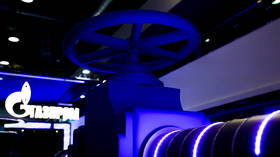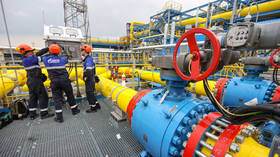Austria explains why it can't ban Russian gas

Austria cannot afford to ban imports of Russian gas as part of sanctions on Moscow, its Finance Minister Magnus Brunner has said. Many Western states, including members of the EU, have imposed sweeping economic restrictions on Russia in response to its military campaign in Ukraine.
Brunner told CNN on Friday that his country supports “all sanctions” on Moscow, but “not the gas embargo.”
“Once a sanction hits yourself more than the one targeted by the sanction, I think there’s not much use,” he said.
He added that Austrian industries are so dependent on Russian gas that they have “no choice.”
Last month, the EU unveiled a plan to phase out its reliance on Russian gas by 2030, but stopped short of an immediate ban on imports. The bloc’s economic powerhouse, Germany, as well as other Central and Eastern European members, remain dependent on Russian energy.
German Economy Minister Robert Habeck warned in March that cutting off imports of Russian gas and oil immediately could cause “mass unemployment, poverty, people who can’t heat their homes.”
Ukrainian President Volodymyr Zelensky, meanwhile, urged EU members to adopt “a clear timetable” for banning or reducing the use of Russian oil and gas.
Russia attacked the neighboring state in late February, following Ukraine’s failure to implement the terms of the Minsk agreements, first signed in 2014, and Moscow’s eventual recognition of the Donbass republics of Donetsk and Lugansk. The German and French brokered protocols were designed to give the breakaway regions special status within the Ukrainian state.
The Kremlin has since demanded that Ukraine officially declare itself a neutral country that will never join the US-led NATO military bloc. Kiev insists the Russian offensive was completely unprovoked and has denied claims it was planning to retake the two republics by force.













